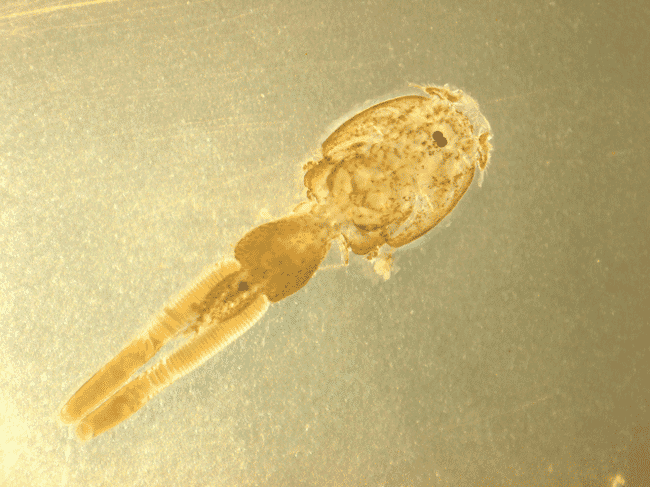
Moredun Research Institute, a farmer-led organisation, has received a Biotechnology and Biological Sciences Research Council (BBSRC) grant worth £1.5 million. The organisation commented that receiving this grant represents a pivotal step towards a sustainable and effective solution to the large challenges posed by sea lice in the aquaculture industry.
Many farmed marine fish species are significantly affected by sea lice, impacting their health, welfare and aquaculture productivity. The salmon louse is an ectoparasite that feeds on the mucous, skin, underlying tissues and blood of farmed Atlantic salmon, with no efficacious commercial vaccine. An increase in salmon louse prevalence and disease issues, largely as a result of climate change, has an estimated annual economic impact on the industry of $1 billion.
This project, to develop an oral vaccine against sea lice is a collaboration between the Moredun Research Institute (MRI), the University of Stirling’s Institute of Aquaculture (IoA), Bimeda Animal Health (BAH) who also provided a contribution of £150,000 to the project, and Vertebrate Antibodies (VAL).
Current challenges
There are major challenges associated with current control approaches against salmon lice that create a barrier against industry expansion, which is worth over £1 billion annually to the UK economy. Development of a commercial salmon louse vaccine would provide a practical, safe, and eco-friendly approach to tackling the issue while also supporting the goal of the Scottish Government to double the value of Atlantic salmon production between 2016 and 2030.
Tests using traditional methods for administering salmon lice vaccines via injection have shown limited success. As an alternative, a team of researchers in ecto-parasitology, molecular biology, bioinformatics, veterinary medicine, and fish immunology led by Moredun’s Dr Kim Thompson, are developing an oral vaccine that hopes to generate an effective immune response within the skin of the salmon.
Vaccine design
The oral vaccine is being designed to affect the biology of the salmon louse during its parasitic phase, hoping to impact aspects such as attachment, development and/or maturation. The team aims to utilise reverse vaccinology (RV) and artificial intelligence (AI) via the EpitoPredikt platform. The team hopes this will help identify key biological targets within the salmon louse and predict which candidate antigens are able to stimulate the correct immune response in the fish.
Dr Thompson stated in a press release: “This vaccine, designed to enhance both systemic and mucosal immune responses in Atlantic salmon, promises not only to bolster the health and welfare of the fish but also to support the sustainable expansion of the Atlantic salmon industry.”
Dr Sean Monaghan of the University of Stirling’s Institute of Aquaculture, will be conducting and running the vaccine trials and assessing molecular aspects of the parasite at infectious life stages that could be exploited for vaccination. The trials will take place at the university’s marine environmental research laboratory (MERL).
As he explained: “Through testing combinations of immune-relevant sea lice antigens together, this project hopes to enhance the immunological response to this complex disease agent.”




